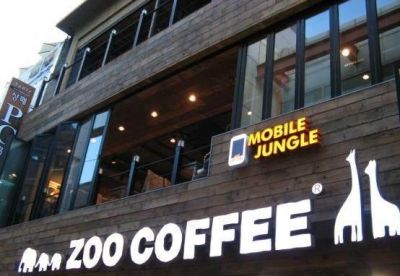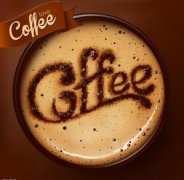Why are Korean coffee shops so successful?
Why are Koreans so successful in opening cafes?

What are the most popular cafes in China's first-and second-tier cities in the past two years? The answer is not Starbucks or COSTA, but all kinds of cafes with Feel: coffee with you, coffee in the botanical garden, coffee in Hollis, coffee on the way, and so on.
These cafes have one thing in common: they are all run by Koreans!
Coffee? Please, it's just a small prop!
Did Koreans really lose the true biography of the coffee god? How many secrets have you lost? Tomorrow, let's share the success of the cafe for the Koreans:
The "genre" of thoughtful cafes in the market:
European coffee shops represented by measures and Italian coffee: boast of the style and taste of coffee beans, summed up in a popular sentence recently: small private shops with craftsmen's supplies
The American cafe represented by Starbucks: mainly grandiose, professional, business atmosphere, gradually evolved into the second office of urbanites
Taiwan coffee represented by the above island coffee, old tree coffee and real pot coffee: it can be said that it is a coffee brand that really conforms to China's national conditions, is the preacher of China's marine coffee civilization, and successfully separates the coffee civilization from China's unique tranquil civilization. it is only seen here that the landlord fights while drinking coffee. Perhaps too successful, so that the inheritors less energy for continuous renovation.
And the Korean cafe is purely equivalent to the reappearance of the plot of Korean TV dramas! Use the romantic space across your idea to give you an opportunity to leave practice for a long time! Coffee? Send, it is just a small prop!
Next, let's focus on a brief introduction to the current popular Korean cafe brands:
Coffee with you
South Korea's largest coffee chain, which has more than 900 stores in South Korea since its establishment in 2008, is headquartered in Qingtandong, Gangnam District, Seoul. In addition to coffee, it also operates a variety of high-end tea, lattes, fruit juices, waffles, breads and other goods. at present, there are more than 1200 chain stores around the world, scattered in South Korea, the United States, the Philippines, Cambodia and other countries. Caffebene entered the Chinese market in March 2012. Jiexun blossomed everywhere in the first-and second-tier cities. At the door is an important portrait of Zhang Genshuo. I think some handsome guy is looking at you if I am not careful.
Botanical garden coffee
Zoo Coffee was founded in South Korea in 2009 and has more than 100 stores in just two years in 2011, making it one of the hottest coffee shop chains in South Korea. Kim Chien-woo, the founder of Zoo Coffee, is a promising young Korean who started a business at the age of 26. He has tested many refurbished and unusual industries, such as 24-hour delivery, and the end Cafe has become! He himself is a coffee addict, with at least three cups of American coffee a day. So to introduce Zoo Coffee into China, Jin Jianyou showed how: "the coffee market in South Korea has been saturated, while the Chinese market has a lot of room." (that depends on how everyone understands it.)
Diffuse coffee
This cafe is even more thoughtful. The founder is a Korean named Xin Zixiang, who started a business in Beijing. Headquartered in Beijing, the first store, Beijing Lido, closed in January 2011. By the end of 2013, more than 60 stores had opened in more than two years. It is said that the first 36 stores have started to make a profit. ManCoffee takes the method of direct operation plus stand-alone work. ManCoffee accounts for 25% Mel 35% of store equity, and 65% Mel 75% for collaborators. It is a miracle that such a coffee brand with no scenery, no brand story and no rich profit can develop to this level in just three years.
Holly Coffee
Hollis Coffee, founded in 1998, is the first branded coffee chain in Korea, and it has an equal number of stores with Starbucks in South Korea. At present, it is one of the four major coffee brands in South Korea, with branches in China, Thailand, Malaysia and other countries. Hollis Coffee China's first store closed in March 2013 at Chegong Temple in Shenzhen, and the global flagship store closed in Shenzhen's Happy Coast in the second half of 2013 (Shenzhen again, it is estimated that people who have been to Happy Coast have drunk their coffee). 2014 badminton champion Lin Dan joined the coffee brand and opened the first Hollis Coffee in Beijing.
After listening to these brands, it is clear to everyone that it is reasonable for Koreans to be so successful in the coffee shop industry:
1. Korean enterprising spirit of constantly striving for change.
In the past, a Taiwanese uncle talked about the personality of Taiwan businessmen. carelessly, he said that the reality of the island made the Taiwanese lack of atmosphere, but the natural conditions and resource constraints strongly raised the abundant human potential. The geographical location of South Korea and the Japanese generally repel each other, this nature can not be replicated, because of the national character. To boast again, South Korea has a population of more than 50 million and a territory of 99000 square kilometers, which is slightly smaller than Zhejiang Province.
2. Koreans have an inexplicably good sense of planning.
It can be sensed from the 2001 film "my savage girlfriend" that 13 years ago, South Koreans were far ahead of China in their understanding of tone, composition and handling of details. In the future, South Koreans will continue to dominate the identity of special needs in web management and game planning. These may be that the generated sense of the plan directly widens the gap with the grade of Jiehao's own cafes in China. Jin Jianyou, founder of Zoo Coffee, is an example. this guy has never studied governance, but he feels surprisingly good about planning. He is alone in all the planning ideas and detailed implementation in the cafe!
3. The success of Korean cultural import.
Some people say that South Korea has done one thing in the past decade and has been using music, movies, and TV dramas to carry out "civilized attacks". Perseverance is, of course, a victory after all. Korean foreign goods are beautiful, romantic and aesthetic pronouns in the eyes of young people. The news I saw the next day was a very true note: after a year in Korea, a handsome Brazilian guy fell in love with Korean civilization and finally relied on strong plastic surgery skills to turn himself into a single-eyelid, dark-haired Asian man.
4. Coffee is not the only thing that makes money in Korean cafes.
But a variety of desserts and foods with beautiful cutlery, fresh and tender ingredients, bright colors and creative dishes. Waffles are usually sold in cafes, which usually sell for no more than $20, but at Hollis or Man Coffee, waffles are placed on a delicate plate with cream or chocolate next to it, and a plate costs $35 or more.
Important Notice :
前街咖啡 FrontStreet Coffee has moved to new addredd:
FrontStreet Coffee Address: 315,Donghua East Road,GuangZhou
Tel:020 38364473
- Prev

Hot questions about making a cup of coffee in the coffee-making strategy
Late at night to rush to work overtime film DotA moment, to a cup of delicious instant coffee, as if the hand speed is also much faster. However, playing the game also has to fight for a ladder grade, and drinking coffee is naturally a higher pursuit. Shenzhen coffee machine rental Auchan coffee machine Shenzhen coffee machine rental Auchan coffee enjoy deep roasting coffee beans automatic coffee machine capsule grinder coffee machine
- Next

Vietnamese coffee culture Vietnamese coffee is also nameless in the world.
I didn't know until I arrived in Vietnam that Brazil is the kingdom of coffee, but Vietnam's coffee is also nameless in the world. The Vietnamese love coffee, just as the Chinese love tea, it is a kind of deep bone marrow, brought from the blood of love and concentration, may be that cup of coffee, gradually baked out of the Vietnamese public gentle and easygoing impatience. Pure Vietnamese coffee is drip coffee, with a dedicated drip coffee pot.
Related
- Detailed explanation of Jadeite planting Land in Panamanian Jadeite Manor introduction to the grading system of Jadeite competitive bidding, Red bid, Green bid and Rose Summer
- Story of Coffee planting in Brenka region of Costa Rica Stonehenge Manor anaerobic heavy honey treatment of flavor mouth
- What's on the barrel of Blue Mountain Coffee beans?
- Can American coffee also pull flowers? How to use hot American style to pull out a good-looking pattern?
- Can you make a cold extract with coffee beans? What is the right proportion for cold-extracted coffee formula?
- Indonesian PWN Gold Mandrine Coffee Origin Features Flavor How to Chong? Mandolin coffee is American.
- A brief introduction to the flavor characteristics of Brazilian yellow bourbon coffee beans
- What is the effect of different water quality on the flavor of cold-extracted coffee? What kind of water is best for brewing coffee?
- Why do you think of Rose Summer whenever you mention Panamanian coffee?
- Introduction to the characteristics of authentic blue mountain coffee bean producing areas? What is the CIB Coffee Authority in Jamaica?

